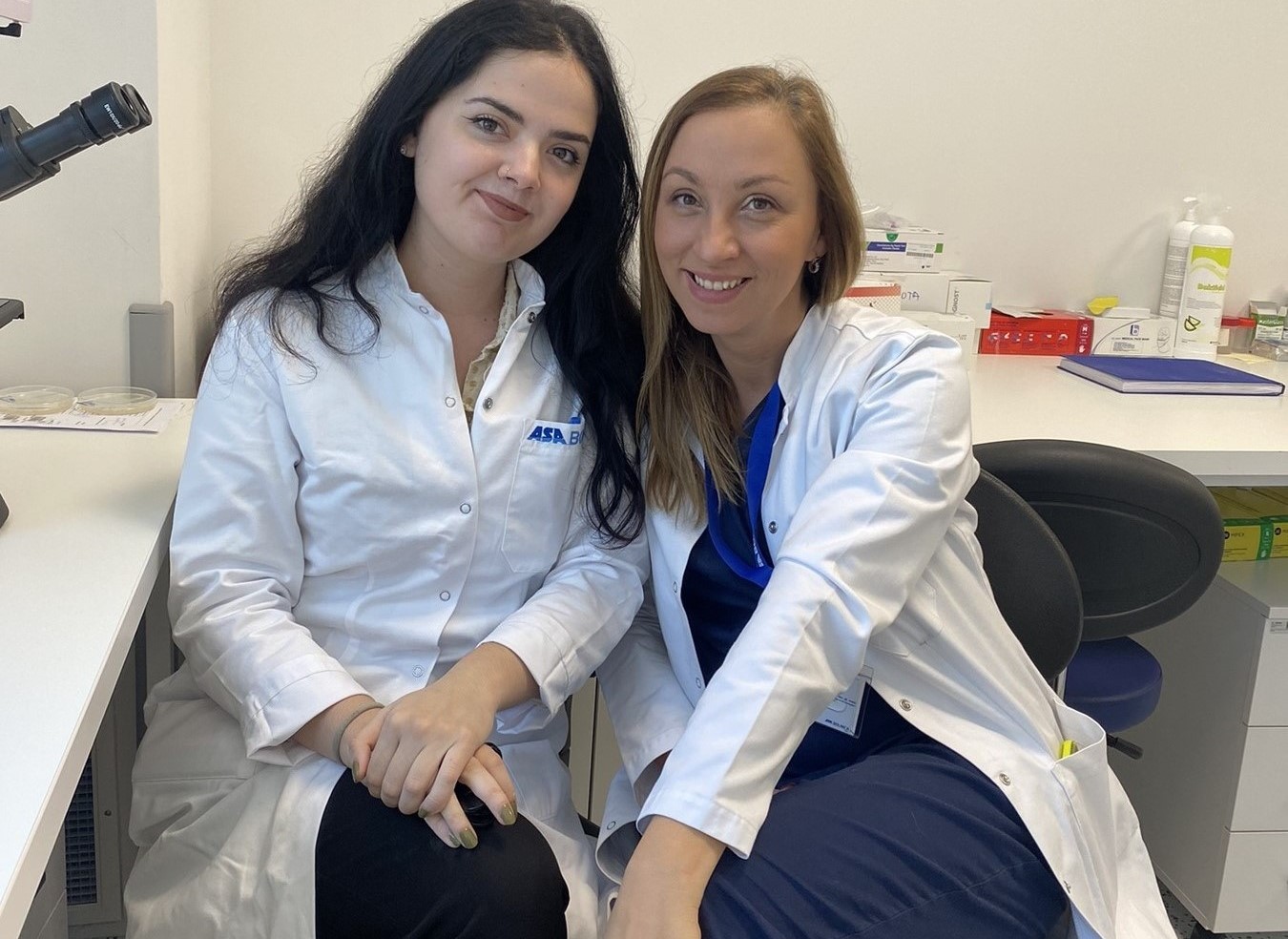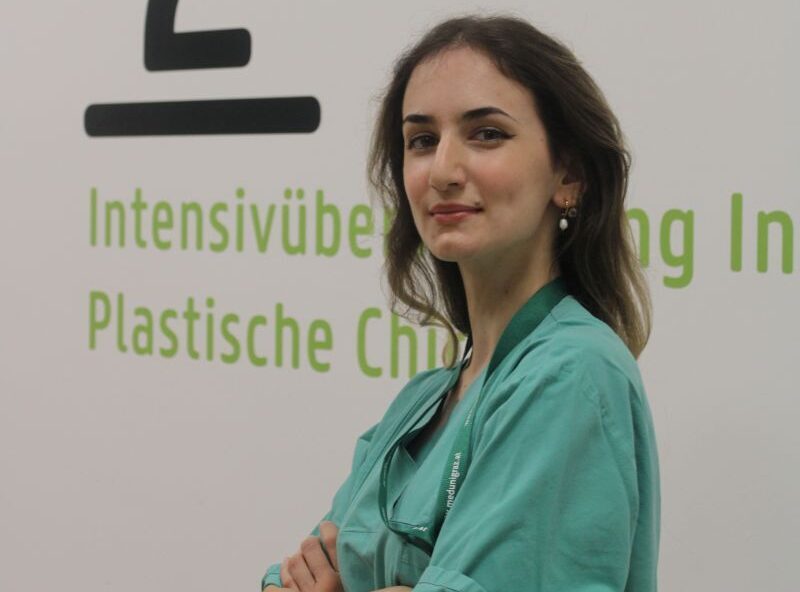At the Department of Clinical Microbiology at ASA Hospital, precision and professional guidance are key to the success of new generations of experts. The department head, Šejla Kotorić Keser, MSc, MD, contributes to this every day, and we had the honour of having Dr. Kotorić Keser as a mentor in the Hastor Foundation’s mentorship program “First Step into the Business World.”
We spoke with the doctor about the results of the mentorship program, but also about important facts in clinical microbiology.
Are you satisfied with the results of the mentorship program “First Step into the Business World”?
Yes, I am delighted with the results of the mentorship program “First Step into the Business World.” The program provided students with a unique opportunity to engage in practical work in a real professional environment, which allowed them to gain concrete experience that was not covered by formal education. Through mentorship, students had the opportunity to direct their passion for science in constructive professional direction, developing key skills necessary for their future work in specialized health fields.
How would you describe the professional development of the student during the mentorship in the Clinical Microbiology department?
During the mentorship program, student Elma demonstrated exceptional dedication, intellectual curiosity, and a remarkable ability to quickly acquire new skills. In a short time, she mastered complex microbiological methods and successfully applied her theoretical knowledge in laboratory practice. Her capacity to adapt to working conditions, identify key elements in the analysis of laboratory reports, and communicate effectively with colleagues and mentors was notable. I believe that her experience in our Clinical Microbiology department was crucial for her professional development, enhancing both her technological and critical thinking skills.
What was the mentorship program like¾what were the main duties and challenges of the mentee?
The mentorship program was structured through a series of practical activities that covered all key aspects of clinical microbiology. Elma’s main duties included sampling human material, preparing samples for testing, performing microbiological tests and analyses, and interpreting laboratory reports. The program also included detailed work with state-of-the-art techniques, understanding the latest microbiological methods and their application in a clinical setting.
What are the most important procedures and analyses performed in clinical microbiology?
In clinical microbiology, various procedures and analyses are performed that are essential for the diagnosis, monitoring and treatment of infections.
The most important procedures and analyses regularly applied in everyday microbiological practice are:
- the cultivation of microorganisms, involving the isolation and identification of microorganisms from clinical samples (blood, urine, sputum) using various agars and media
- testing the sensitivity of bacteria to antibiotics, which helps to determine the most effective therapy for the patient
- the detection of pathogens through genetic material, allowing for fast and precise diagnosis, especially for difficult-to-cultivate microorganisms
- the tests for detecting specific antibodies or antigens used for diagnosing infections such as HIV, hepatitis, and bacterial diseases
- the microscopic analysis of samples, facilitating the visualization of microorganisms
- testing for nosocomial (intrahospital) infections and resistant strains, as well as microbiological analyses of the hospital environment
These are some of the analyses. Each of these analyses and procedures plays a key role in the proper diagnosis, treatment, and prevention of infections. Successful implementation of these methods requires a high level of expertise and precision, as microbiological findings will significantly influence the choice of therapy and patient outcomes.
How important are microbiological findings for diagnosing and treating patients?
Microbiological findings are crucial for diagnosing and selecting appropriate therapy, as they allow clinicians to accurately identify disease-causing organisms and determine the most effective treatment. Microbiological findings also enable the timely identification of antibiotic-resistant strains, which allows for timely adjustment of therapy and prevents the further spread of drug resistance.
What skills do you consider most important for students who want to work in the field of medical microbiology? Do you have a message for them?
For students who wish to work in the field of medical microbiology, key skills include:
- analytical thinking¾the ability to accurately interpret laboratory data and relate that data to the broader clinical context
- technical expertise¾a deep understanding and competent use of modern microbiological techniques and technologies
- communication skills¾clear and precise communication with colleagues and other members of the healthcare team, as well as with patients
- continuous learning¾given the rapid advancement of technology and new methodologies, it is essential that experts in this field are prepared to constantly improve and apply the latest knowledge.
A message to students:
If you want to succeed in the field of clinical microbiology, you must be passionate, dedicated and always motivated to learn. This profession requires a high level of expertise, precision and responsibility, but it also provides an incredible opportunity to contribute to the health and well-being of patients. Develop your skills, be responsible and always strive for excellence in everything you do.




